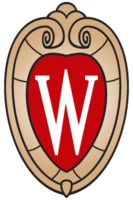Scientists at UW-Madison are exploring a new potential avenue for cancer treatment that could prove less expensive than existing therapies.
In a recent study published in the Journal of the American Chemical Society, Professor Seungpyo Hong and postdoctoral researcher Woo-jin Jeong detailed the design for a new type of nanoparticle that can stimulate the body’s immune response to cancer.
According to the study, these minuscule complex structures were as effective at boosting that response as antibodies, which form the basis of immunotherapy. This type of cancer treatment “boosts the patient’s own immune system to fight against cancer cells better,” Hong said in a release.
But antibodies used in these therapies are costly and difficult to create, he said, which led his team to look for other ways to induce this effect.
By combining a microscopic scaffold with precisely oriented proteins, Hong and collaborators were able to override a defense system employed by cancer cells. These cells can avoid detection and response from the immune system by imitating a biological signal given off by normal cells.
The nanoparticle structure overcame this strategy in laboratory testing, reducing cancer cells’ ability to hide from immune cells tasked with eliminating threats.
“The bottom line is that, for the first time, we developed this peptide-nanoparticle platform for immunotherapy and found clear evidence that this system has great potential,” Hong said.
This new treatment was also shown to improve the effectiveness of a chemotherapy drug called doxorubicin in similar tests. According to the release, Hong has applied for a patent on the new nanoparticles and has begun testing with animal models.
A course of antibodies used in immunotherapies can cost upwards of $100,000 according to the study. The researchers say their nanoparticles are cheaper and easier to produce.
Through UW-Madison’s School of Pharmacy, Jeong and Hong teamed up with other scientists at the University of Illinois at Chicago to conduct this research. Their work was partially funded by grants from the National Institutes of Health and the National Science Foundation.
Hong is the director of the Wisconsin Center for NanoBioSystems and specializes in research focused on nanotechnology, materials science and biology.
See the study: http://pubs.acs.org/doi/10.1021/jacs.9b10160






